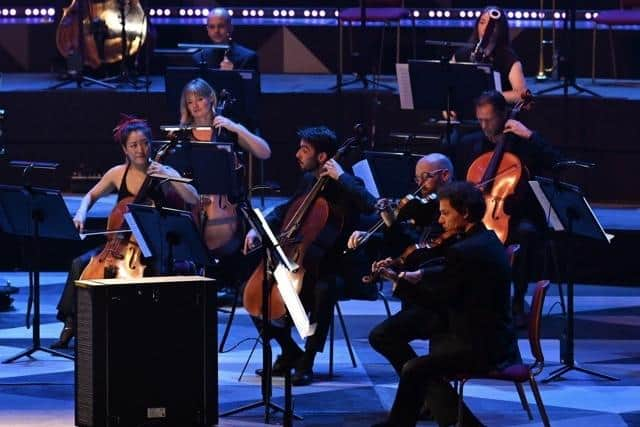Music review: SCO, Queen's Hall, Edinburgh
SCO, Clemens Schuldt & Alban Gerhardt, Queen’s Hall, Edinburgh ****
If there was ever a vague intention to make this SCO programme an all-Schumann affair, good sense prevailed in offering the Scottish premiere of Julian Anderson’s Cello Concerto “Litanies” as a moment of refreshment between the former composer’s unsung Overture, Scherzo and Finale and his stern Rhenish Symphony.
Advertisement
Hide AdAdvertisement
Hide AdThe concerto, written in 2018/19, featured its dedicatee, German cellist Alban Gerhardt, as soloist. Its elusive, gossamer demeanour unwound us from the breezy joyousness of the opening Schumann, its harnessed spectral energy like mental preparation for conductor Clemens Schuldt’s rugged realisation of the Rhenish.


It was clear from the outset – a persistent, polarising note by the cellist setting off a cascade of cellular ideas and kaleidoscopic textures – that Gerhardt was party to its composition. The ease with which he negotiated the three continuous movements, the challenging imagery imparted high on the fingerboard, the sheer inventiveness of Anderson’s sound world, was a triumph of technical subtlety, much of it breathtaking.
Schuldt’s incisive command over a sharply responsive SCO and its endlessly colourful input added to the aural spectacle.
The interplay with Gerhardt was riveting, his high-tension pizzicatos firing darts at a wall of steely harmonics, Messiaen-like block chords like the glue holding together the cellist’s ethereal motivic shards.
The final moments, granted to the cellist alone, ascended magically into the stratosphere.
If Schumann’s Overture, Scherzo and Finale – essentially a prototype symphony – was more earth-bound, it is also a work which finds the famously depressed composer in the highest of spirits. Schuldt embraced that with a physicality that swung between rapier-like bravado and teasing inertia.
Such ruggedness also extended to the Rhenish Symphony, where an edgy start was soon forgotten as the sustained virility of this performance took hold.